Imperative verbs KS2 – Best classroom worksheets and resources
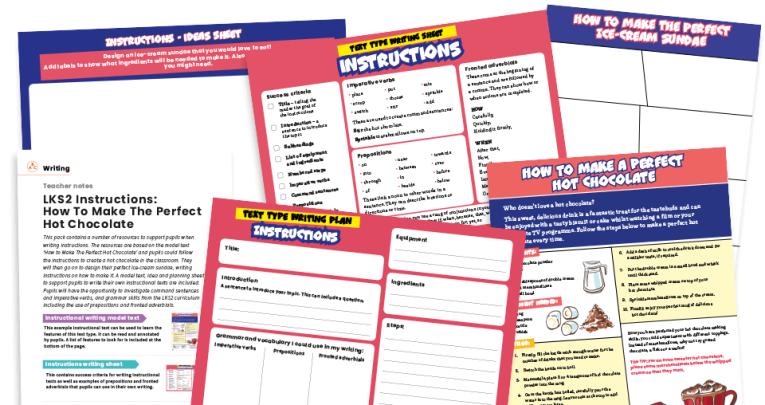
Help your primary pupils get to grips with imperative verbs with these resources, activities and ideas…

- by Teachwire
- Classroom expertise and free resources for teachers
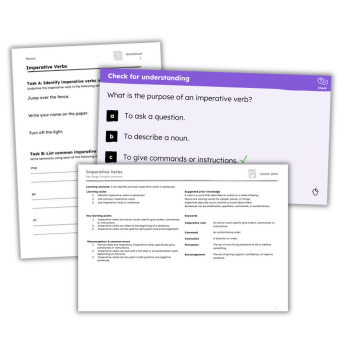
As a KS2 teacher, you’ll be used to using imperative verbs all day, every day to give instructions to students. Whether you’re telling them to “line up,” “listen,” or “calculate,” you’re relying on this powerful verb form to make sure your directions are clear and direct.
But what exactly are imperative verbs (also known as ‘bossy verbs’), and what’s the best way to teach them in KS2?
What is an imperative verb?
Simply put, an imperative verb gives a command, instruction or request. For example, words like “sit,” “listen,” “write,” or “jump” are all imperative verbs.
Teaching imperative verbs to KS2 students can be a lot of fun and highly interactive. Since children already encounter imperative verbs in everyday instructions, they often understand their function without realising it.
Start by explaining that we use imperative verbs when giving commands or instructions. For example, “Pass the ball” or “Stand here.”
Then reinforce the learning by incorporating games and activities where students give and follow instructions using imperative verbs, such as a class game of “Simon Says.”
Alternatively, ask students to write their own sets of instructions – for a recipe, a set of rules for a game or even directions for a classmate to follow.
Imperative verbs examples
- Please take your seats.
- Complete your work then put it on my desk.
- Stop!
- Try it!
- Catch!
- Get some rest. We have a big day tomorrow.
- Gently put your models on the side to dry.
Negative imperative verb examples
- Don’t touch that!
- You shouldn’t go in there.
- Emily won’t come to the party.
Imperative verbs KS2 teaching resources
Imperative verbs KS2 PowerPoint
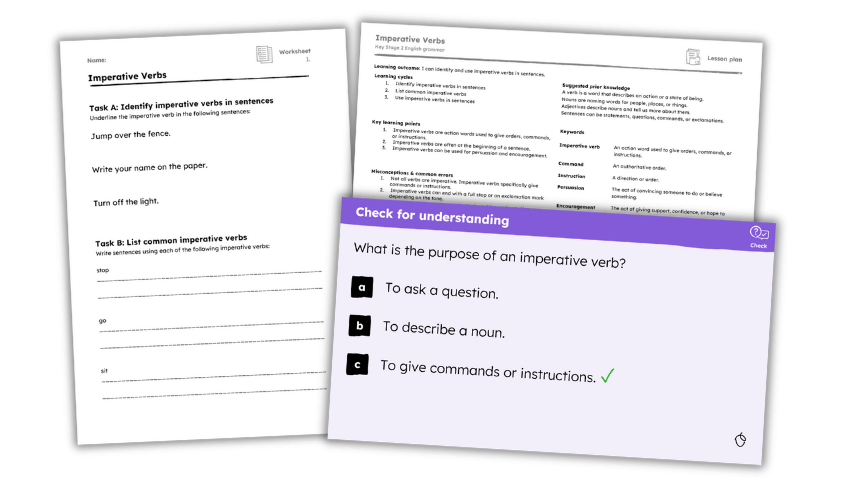
Use this free imperative verbs KS2 PowerPoint and accompanying lesson plan, worksheet and quizzes to assist pupils in identifying and using imperative verbs in sentences.
How to make a perfect hot chocolate
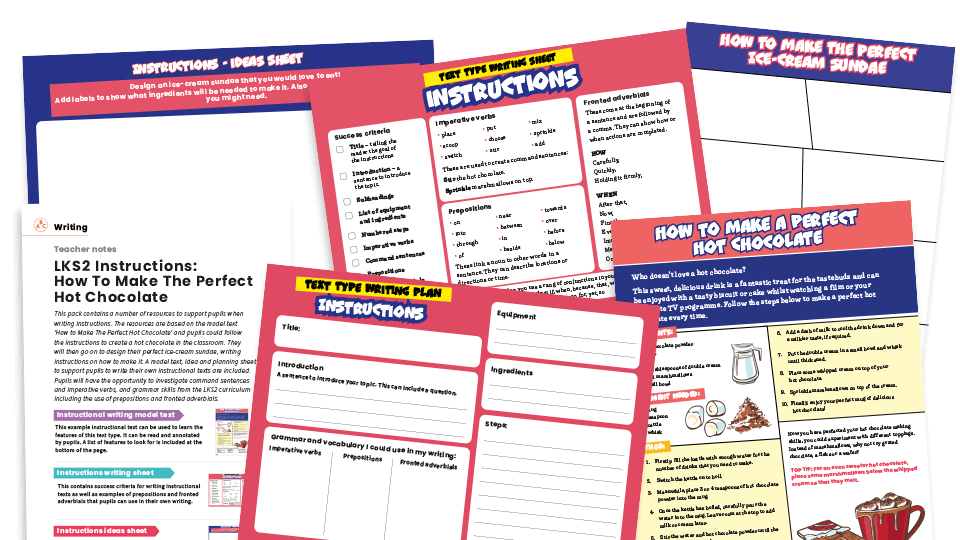
This instructional writing resource pack from Plazoom includes a model text and worksheets to help pupils complete their own piece of work containing imperative verbs. (There’s also a similar KS1 version here.)
Trap a dragon with Pie Corbett
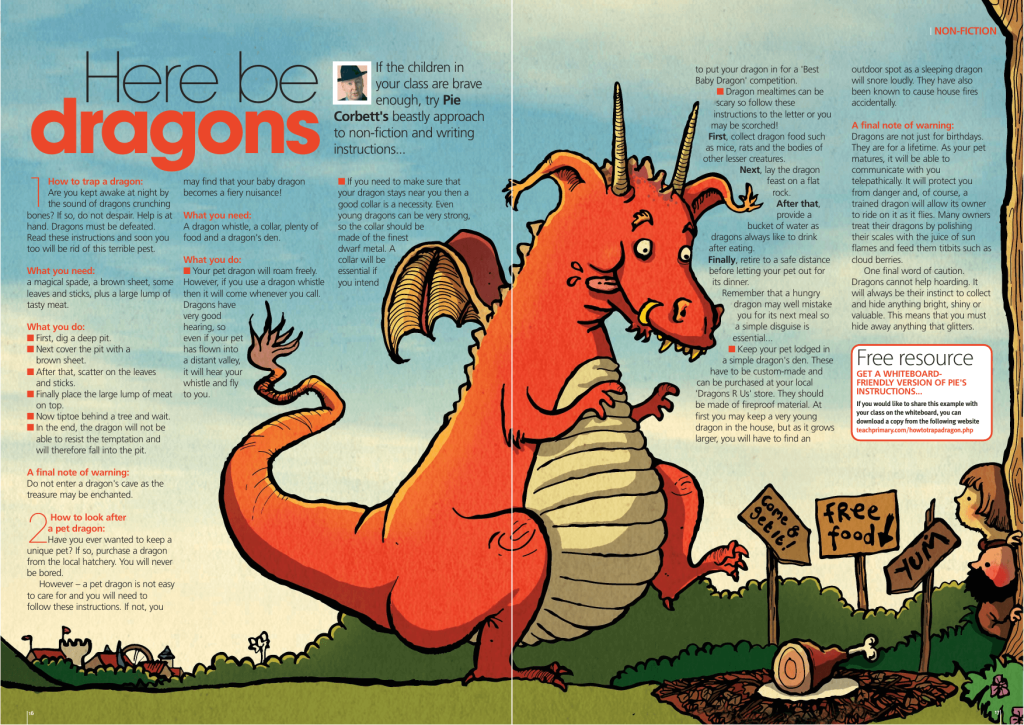
Try this writing instruction KS2 resource from Pie Corbett to show your class how to write instructions for getting rid of a pesky dragon. The model text contains lots of examples of imperative verbs, such as:
- Dig a deep pit
- Cover the put with a brown sheet
- Scatter on the leaves and sticks
Teach imperative verbs with The BFG
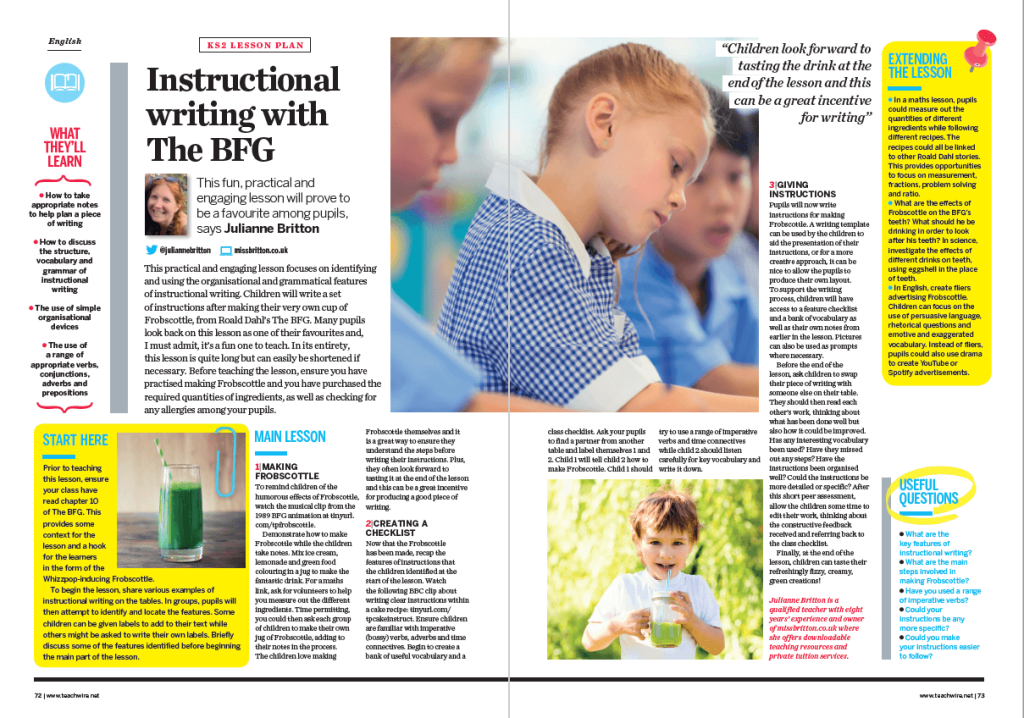
This fun, practical and engaging Roald Dahl lesson from Julianne Britton focuses on identifying and using the organisational and grammatical features of instructional writing, including imperative verbs.
Children will write a set of instructions after making their very own cup of Frobscottle, from Roald Dahl’s beloved book.
Cross-curricular paper plane project
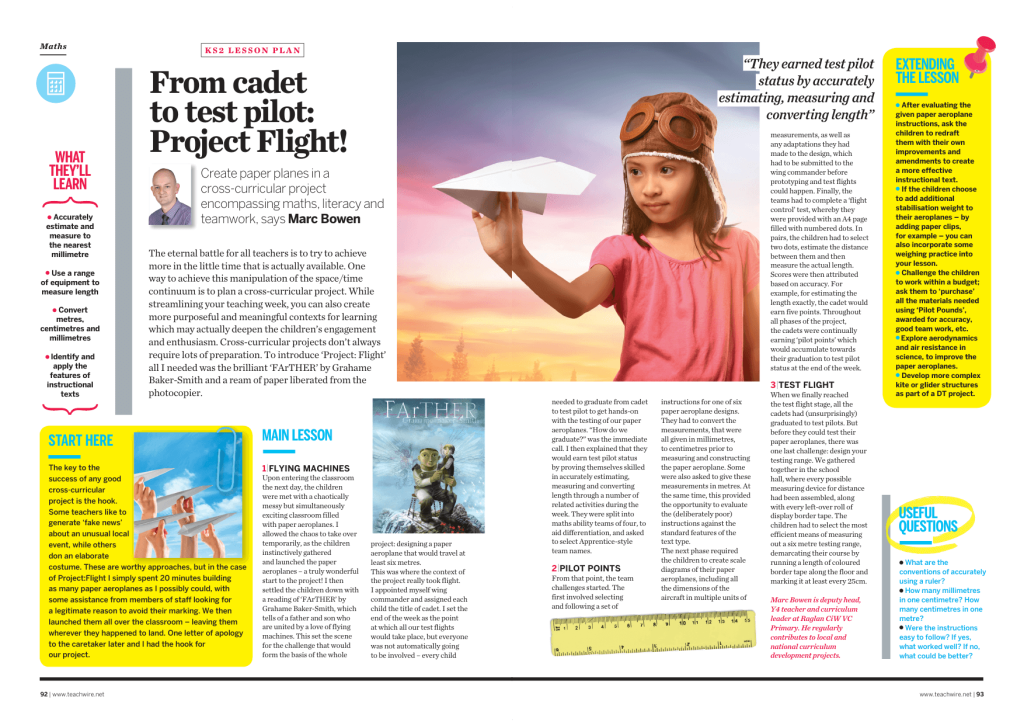
Give children deliberately poor instructions for making paper aeroplanes then ask them to redraft them with their own improvements and amendments to create a more effective instructional text. Get all the details in this cross-curricular paper planes lesson plan.
Viking treasure instructional writing task

Use this news story from The Week Junior about the theft of Viking treasure as the starting point for an instructional writing activity.
The task for your KS2 students is to write instructions for what someone should do if their metal detector finds something of potential value, using sequencing conjunctions and imperative verbs.
BBC video
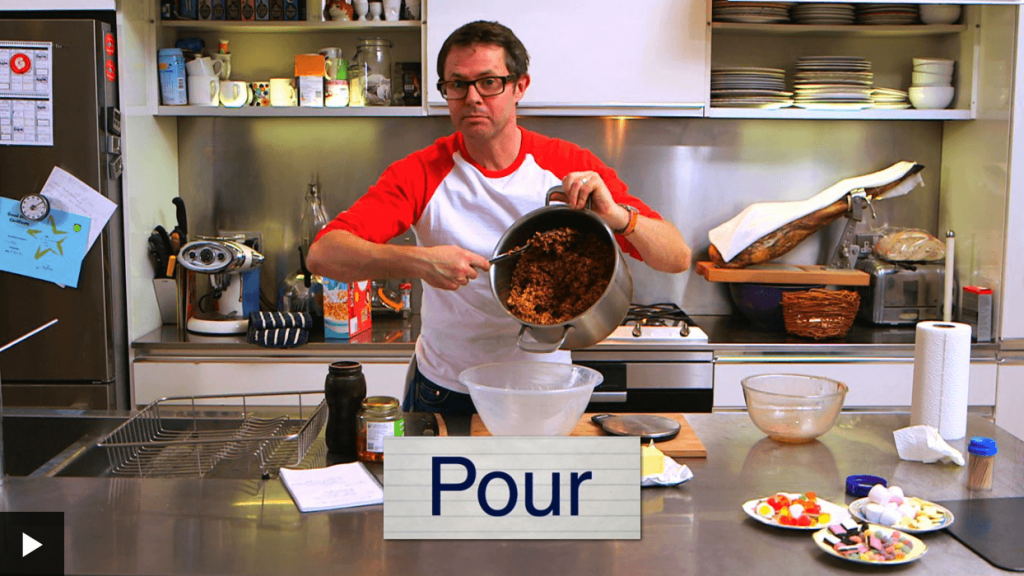
This short film is from the BBC series, The Facts About Non-Fiction. In it, Stefan Gates demonstrates the process of instructional writing using a cake recipe, including using imperative verbs.
How to write command sentences
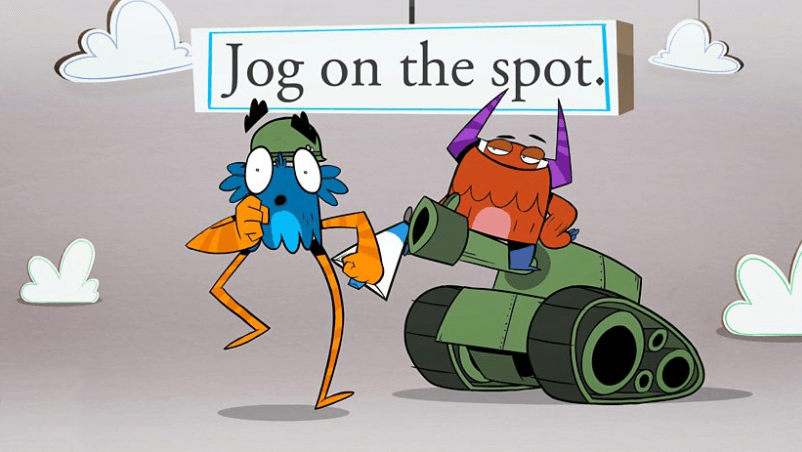
For a nice introduction on writing command sentences (which, of course, contain imperative verbs) this BBC Bitesize article has a short explanatory video, tips and examples and a quick quiz to help embed learning at the end.
Bossy Bats imperative verbs resources
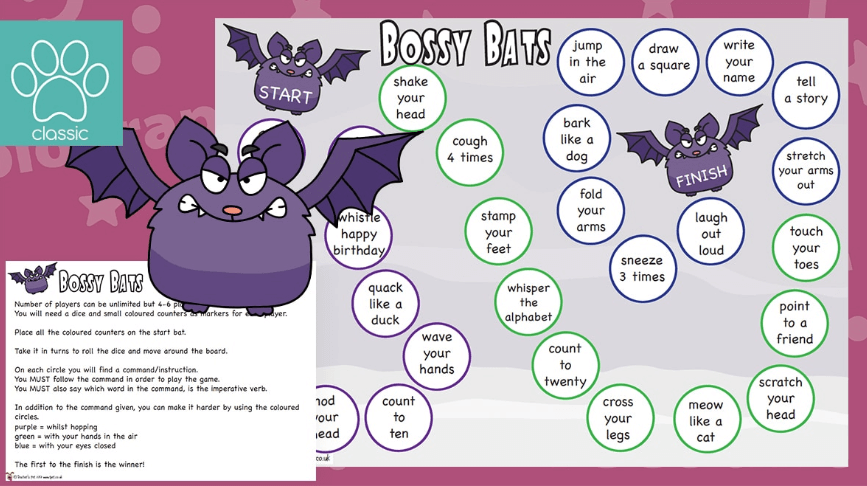
Bossy Bats is a fun action game for children to play when learning about bossy or imperative verbs. Pupils will follow simple instructions or commands and you only need a dice and counters to play.
Sandwich-making instructional writing
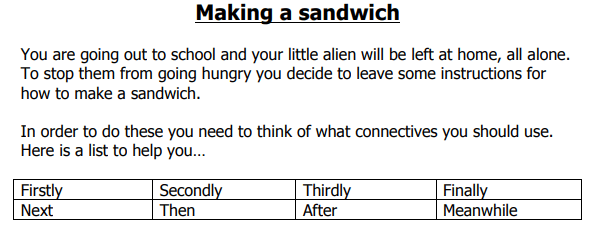
In this activity children have to write instructions for an alien on how to make a sandwich, so they had better be very clearly written and easy to follow.
The worksheet provides a list of connectives children might want to use, as well as some imperative verbs like ‘slice’, ‘open’ and ‘mix’.
Rewrite sentences into the imperative form worksheet
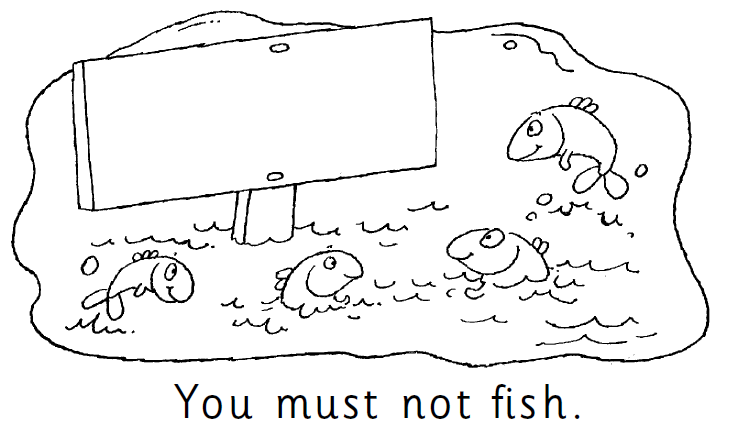
Create some imperative verbs and rewrite the statements with this illustrated PDF activity.
Children need to use their comprehension and grammar skills to rewrite sentences like ‘You must stop, thief’ into the imperative form.










